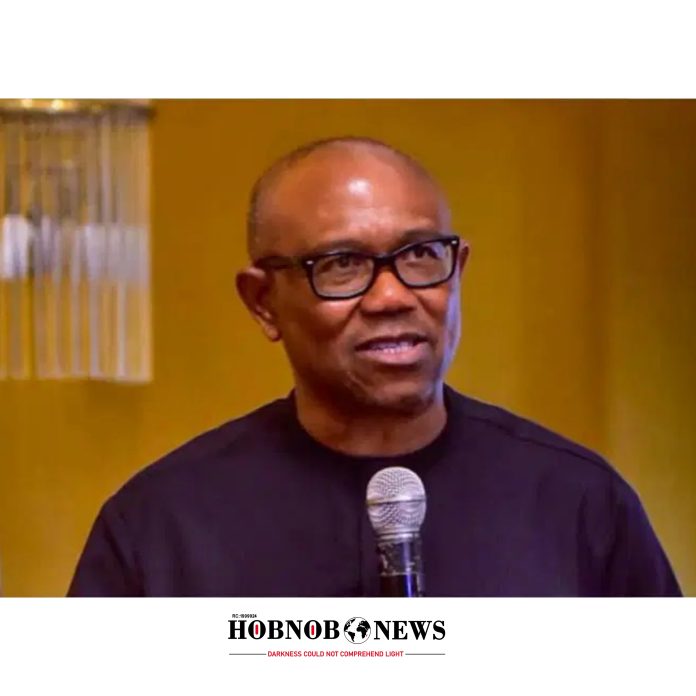Peter Obi, the presidential candidate of the Labour Party in the 2023 general election, has walked back his earlier remarks regarding an alleged collapse of Nigeria’s national power grid. The reversal follows a wave of backlash on social media, with many accusing the former Anambra State governor of making unverified claims.
The controversy began after a power outage affected parts of Lagos on Saturday, January 11, 2025. While the incident was erroneously attributed to a grid collapse by some media reports, Obi took to X (formerly Twitter) to express his concerns about the power sector. In his initial statement, he decried what he referred to as the incessant collapse of the national grid, highlighting that it had reportedly failed 12 times in 2024 alone.
Obi stated: “The incessant collapse of the national grid has subjected Nigerians to untold setbacks and hardship. Despite borrowing over $3.23 billion in the last four years to address electricity issues, recurrent failures continue to plague the sector.”
Backlash and Clarification
Obi’s comment quickly gained traction, sparking a heated debate online. Many Nigerians criticized him for not verifying the facts before issuing such a statement. Critics argued that as a prominent leader, his remarks carried significant weight and should be grounded in accuracy.
The Transmission Company of Nigeria (TCN) stepped in to clarify the situation. According to their statement, the outage in Lagos was not due to a grid collapse but rather a tripping of the Osogbo-Ihovbor and Benin-Omotosho lines. The TCN emphasized that the national grid remained stable during the period in question, labeling the collapse rumors as false.
Obi’s U-Turn
In the wake of the backlash and TCN’s clarifications, Obi issued a follow-up statement, acknowledging that his initial comments were based on reports from what he described as “reputable media platforms.” He expressed regret for any misinformation and thanked the TCN for promptly setting the record straight.
“Following my earlier message regarding the alleged collapse of the National Grid, which was based on reports from reputable media platforms, I have since learned that there was no such collapse,” Obi wrote on X. “Instead, the incident involved the tripping of the Osogbo-Ihovbor and Benin-Omotosho lines, which affected the Lagos axis.”
He added, “I sincerely hope we will prioritize enhancing our infrastructure in the power sector and remain committed to improving power generation to meet the growing needs of over 200 million Nigerians.”
Renewed Calls for Power Sector Reform
Despite the misunderstanding, Obi used the opportunity to renew his advocacy for comprehensive reforms in Nigeria’s electricity sector. He highlighted the significant investment already made in the power industry and called for greater accountability and efficiency to ensure that Nigerians can enjoy uninterrupted electricity.
The incident underscores the importance of fact-checking in an era of rapid information dissemination, particularly for public figures whose statements can influence public discourse. It also reignites discussions on the persistent challenges facing Nigeria’s power sector, from grid stability to inadequate power generation, despite substantial financial investments.
As the conversation continues, Obi’s retraction serves as a reminder of the responsibility leaders bear in fostering informed and constructive dialogue on critical national issues.

